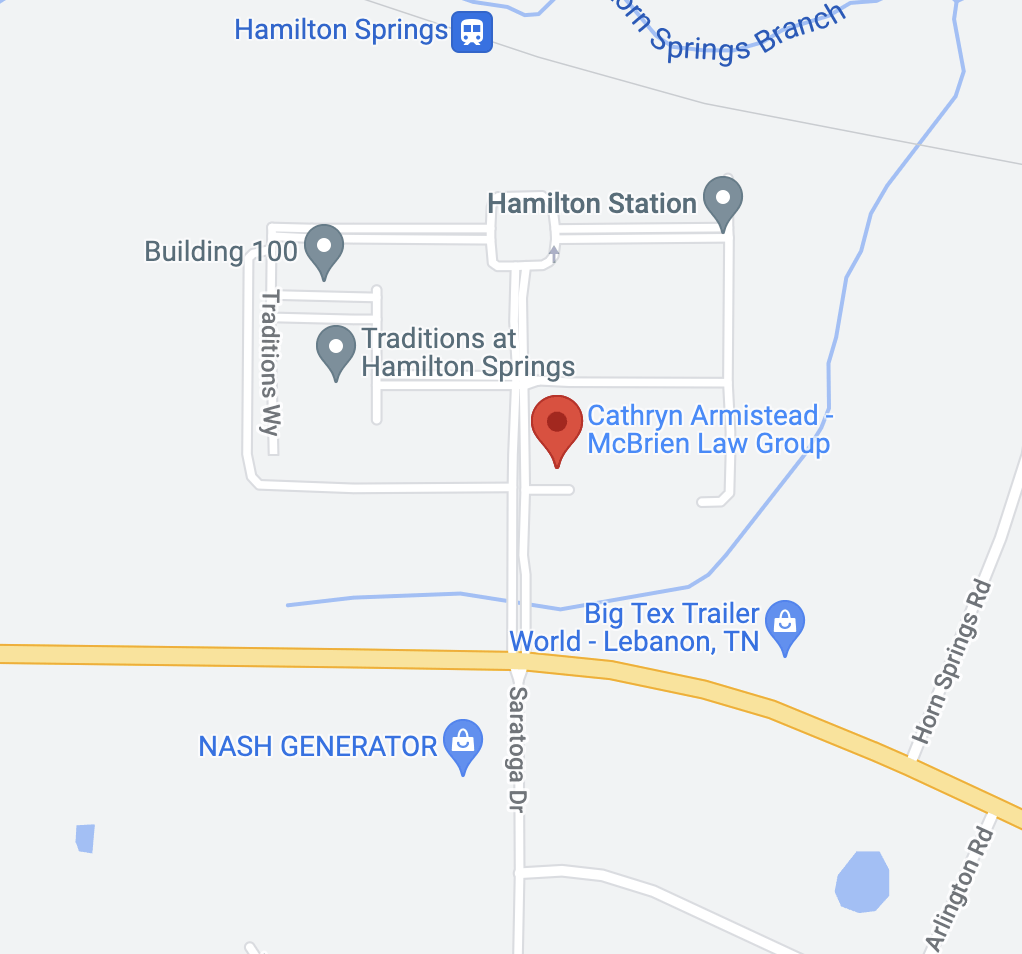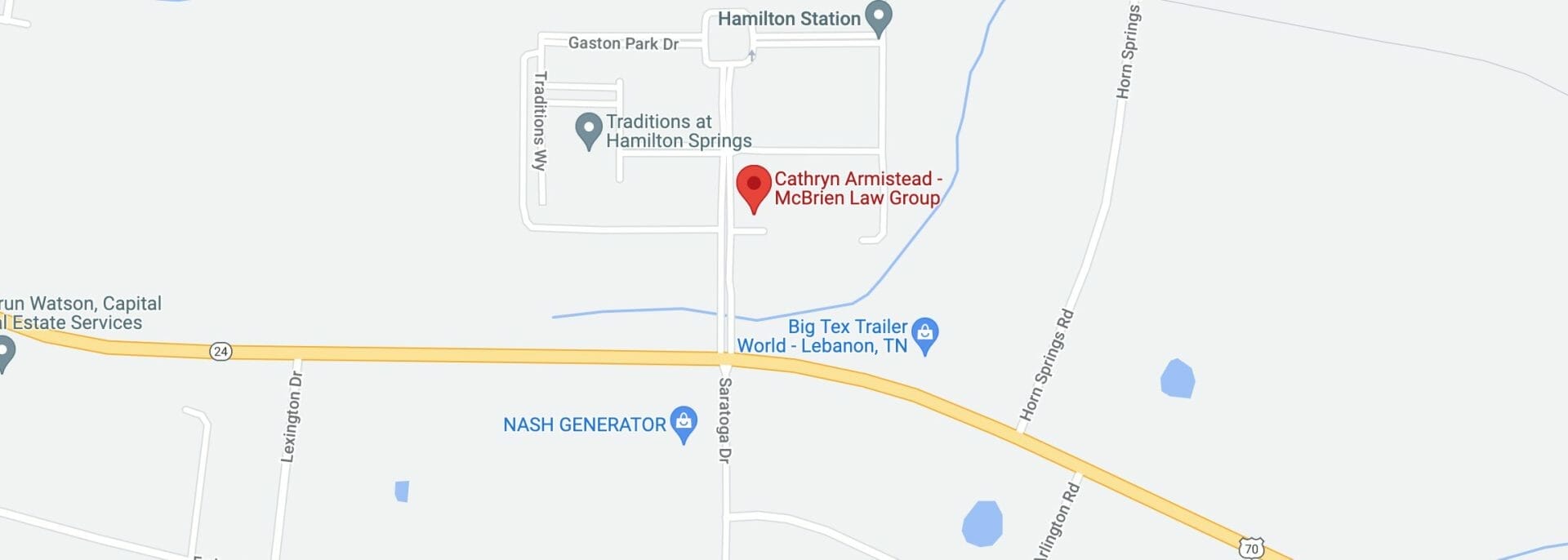Navigating probate law can be challenging, especially during times of loss. At McBrien Armistead Law Group, we’re committed to guiding you through your most pressing questions about Tennessee probate law. Whether you’re dealing with the loss of a loved one or planning for your estate, our team of experienced attorneys has the knowledge and expertise to help you navigate the complex legal processes involved in probate.
Probate is the legal process through which a deceased person’s assets are distributed, and their final affairs are settled. This can include paying off debts, distributing property and assets to beneficiaries, and ensuring that all taxes are paid. If someone passes away without a will, their estate will be subject to intestate succession, meaning that state laws will dictate how their assets are distributed.
We’ve put together a list of commonly asked questions about probate law. Understanding that every case is unique, don’t hesitate to contact our office for details, but we hope this list can answer some general questions for you.
1. Can someone sell my property if I am on the will?
The specific terms of the will generally determine this. If the will explicitly states that you are to receive a property, it usually cannot be sold without your consent. However, under certain circumstances, the executor might have the legal authority to sell the property.
2. What are the consequences of not going through probate?
Probate is a crucial legal process that validates a will and ensures the proper distribution of assets. Bypassing it could lead to inheritance disputes, potential legal complications, and delays in asset distribution.
3. Why would a will not go to probate?
Certain assets, such as jointly owned properties or assets with designated beneficiaries (like life insurance policies), bypass probate.
4. Which is better for estate planning, a will or a trust?
Both instruments have their advantages. A will is a legal document directing how your property should be distributed after your death. On the other hand, a trust provides control over your wealth and assets during your lifetime and dictates their distribution posthumously. Trusts also offer the advantage of avoiding probate.
5. What happens to joint assets when someone dies?
Joint assets typically pass directly to the surviving owner without undergoing probate.
6. What states have an inheritance tax?
As of 2024, six states impose an inheritance tax: Iowa, Kentucky, Maryland, Nebraska, New Jersey, and Pennsylvania.
7. What is the duration of the probate process?
The duration of the probate process can vary considerably, depending on factors like the complexity of the estate and disputes among beneficiaries. In Tennessee, it typically takes between six months to a year.
8. What is a probate will?
A probate will is a legal document authenticated by the probate court. This process confirms the will as the deceased’s valid last testament.
9. Why am I listed as a non-devisee for probate of will?
A non-devisee is an individual who does not receive property under a will. You could be classified as a non-devisee if you’re a legal heir, but the will does not leave you any property.
10. What should I do for probate with no will?
In Tennessee, if someone dies without a will (intestate), their estate will be distributed according to state law. It’s advisable to consult with a probate attorney to guide you through this process. Having a Probate lawyer in your corner will ease your stress and smooth the process.
At McBrien Armistead Law Group, we’re here to navigate the complexities of probate law. Our experienced team can provide personalized advice tailored to your unique circumstances.



